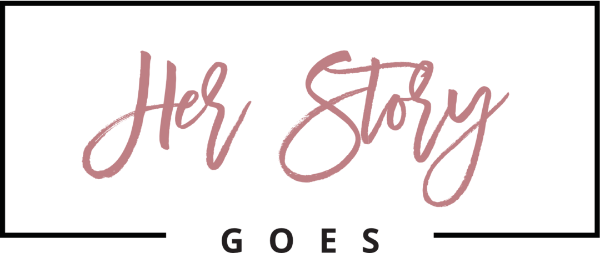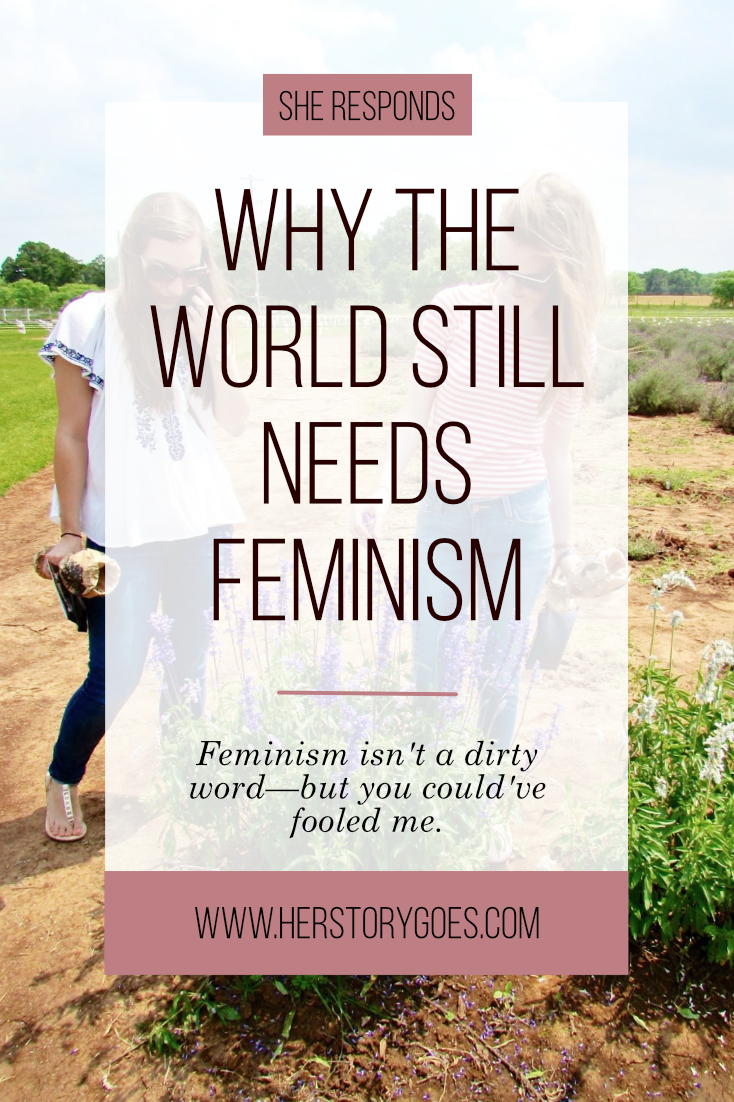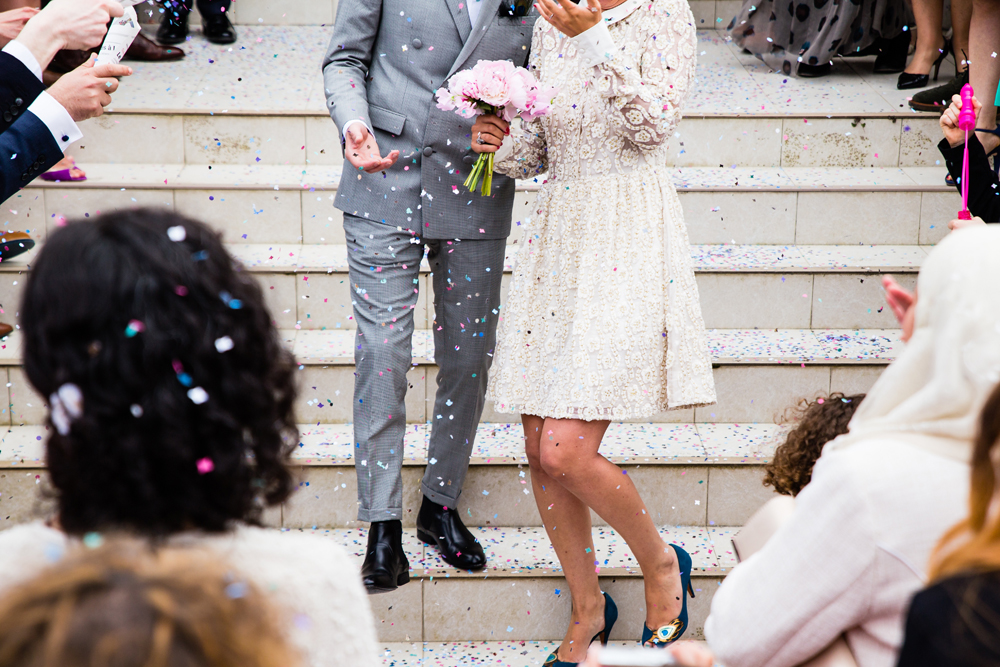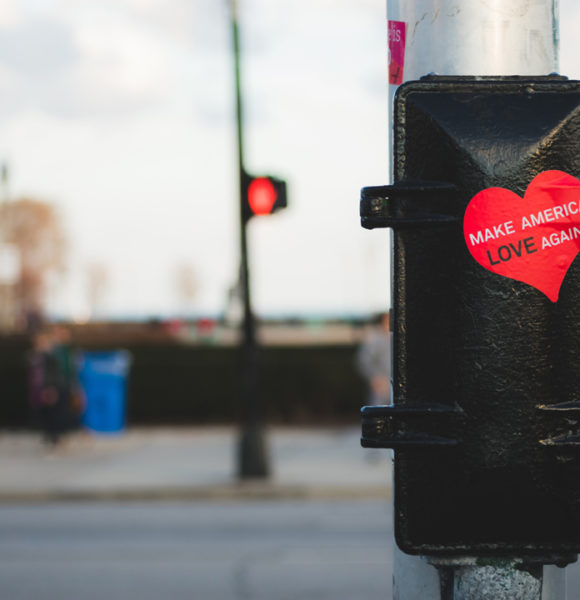
This post was created through the collaborative efforts of both Kristen and me (Emily), the co-founders of HSG, regarding a topic that is close to our hearts. As always, we’d love to know your thoughts and opinions! Feel free to add to the discussion by posting your comments below.
—
What if I said that I was a feminist?
Would you roll your eyes, call me a man-hater, or change the subject altogether? Would my statement make you feel uncomfortable or just outright annoyed?
If so, you’re not alone.
The word “feminism” turns a lot of people off, and it’s not difficult to understand why.
“When you associate yourself with that particular group of women, you’re basically claiming to hate men, support abortion, and believe in the superiority of your sex,” said one of my (male) friends during a heated conversation over what he described as a corrupt movement. (There may or may not have been alcohol involved.)
Sadly, I’ve heard this a million times, it seems, from most of the men in my life—and even from some of the women. All of whom receive the same response from yours truly:
But actually, friend, I’m not.
As most everyone (I hope) will agree, feminism began with noble intent. The original feminists fought for the right to vote, to hold a job, to own property, and to simply be seen in the eyes of society as equal to her husband—or any man, for that matter. They believed in political, economic, and social equality among the sexes. Nothing more, nothing less.
Many women stand by the original definition as the true definition, and I am wholeheartedly one of them. It’s the reason I call myself a feminist, and yet, if my male friends claim to support the rights of women as well, why is the word “feminism” considered taboo?
We could blame it on modern media and its obsession with radicalism, they way it twists and turns people’s actions and words into something they’re not to further a particular agenda. Or we could call out the women around us who do openly despise the opposite sex, see others as inferior, and use feminism “as a stick with which to beat other women.”
But rather than waste our time discussing exactly how and where the original meaning got lost in translation, I’d like to work together to put an end to the harmful stereotypes surrounding feminism today. Feminists are not bra-burning man-haters. We are not out for blood or revenge, we don’t ignore the fact that men also suffer from society-imposed gender roles, and we’re not trying to take over the world. (Can you imagine a world without men? I can’t, and I don’t care to.) We simply wish to be shown the same amount of respect as our male counterparts in every aspect of life.
That’s it. Feminism is not an invite-only club with regulations, conditions, or pre-reqs. There is no right way to be a feminist. No one-size-fits-all. Take me, for example.
I am a proud feminist who is married to a perfect gentleman. He holds the door open for me, takes out the trash, and occasionally brings home chocolate or flowers. (Chivalry is not dead, my friends.) He is also the main breadwinner of our tiny family, and I’ve never been ashamed of that fact.
I am a feminist who praises both stay-at-home moms and working mothers, and would be proud to one day fall into either category.
I am a pro-life feminist. I believe that human life–no matter what stage—is sacred, and I choose to stand up for all of the helpless children that can’t fight for their own lives.
I am a feminist who strongly supports racial equality, LGBT rights, safety and solace for refugees, rights for the disabled, and education for girls everywhere.
All of this to say, I am human—and I respect my fellow humans, whether they look/act/love/worship like me or not.
Which might lead you to ask: Why not just call it egalitarianism or humanism? For starters, humanism was a philosophical movement in the 19th century that advocated for secularism, freedom of thought, and a man-made ethical code. Egalitarianism, on the other hand, states that all human beings are fundamentally equal and entitled to equal resources. (Better.) But neither term addresses the root of the gender equality problem or acknowledges the fact that women are the underprivileged sex. It takes small, specific steps in the right direction to see real change—a lot of mini movements with big missions that work together to alter the way that we as a society view the world. The great thing is, feminism and fill in the blank are not mutually exclusive. We can be a part of more than just one -ism. In fact, we should be. We are stronger together, after all.
Emma Watson, the newest face of feminism, seems to understand this. She’s spearheading the UN Women’s He For She campaign, an inclusive organization that promotes the kind of uplifting message I believe is worth embracing as modern-day feminists: Men for women, women for women. Period.
For women, this means lifting each other up on a daily basis, not judging or comparing one another based on a set of imaginary rules. If you are out there hurling hateful insults and putting other women down for not believing the exact same things as you, aren’t you part of the problem? As for men: Think of your wives, sisters, mothers, friends. Regardless of ideology, religious beliefs, or personal convictions, if you want the absolute best for them—respect, education, freedom, opportunities—you are a feminist.
“But women ARE equal,” men chime. “You can do everything we can do, so isn’t it about time we give this whole feminism thing a rest?”
It’s easy to see something on paper and think you’ve eliminated the problem. Sure, in the United States women can vote. Heck, we can even be on the ballot. We can own property and go to college and become a CEO. We technically have the right to our bodies, and it’s against the law for our husbands to physically abuse us.
But consider the things not written down—the things more cultural than legal.
Traveling alone as a woman is largely considered irresponsible. A woman getting drunk at a party isn’t just silly—it can be dangerous, and when something awful does happen, your attacker may only serve three months in jail because he’s a star on the Stanford swim team.
Or ponder the fact that 15% of female undergraduates at The University of Texas at Austin have reported being raped since their enrollment. That’s just one survey from one college campus brave enough to conduct the study in a country with a culture that clearly has a problem. But our rape prevention classes are typically a list of tips for how women should actively avoid being violated in our own communities, as if being constantly vigilant is all it takes. As if there isn’t a larger issue we’re not talking about.
Or think about how breastfeeding in public is often considered indecent, but your local Victoria’s Secret displays giant ads with sexualized breasts that go unquestioned.
The list can go on—sex trafficking, the porn industry, harassment in the workplace, maternity leave.
But what gets me most in my day-to-day life are the little things. Catcalling during my daily jog. The flirty confession from my boss that I was hired for a position based on my looks, not my accomplishments. Gaslighters that suggest I’m “overreacting” or “getting emotional” when I stand up for myself or simply express an opinion.
Think of the most demeaning, vulgar words you can, and you’ll likely come up with something gendered female. Bitch. Slut. Pussy. C***. The last one as the ultimate insult, as if simply having a vagina makes you less.
And we’re not even talking about women outside of the United States, many of whom have it much worse.
Of course, all of these problems won’t be solved overnight, and it’s also very much a two-way street. If we’re going to care about injustice for women, we must also care about injustice for men. But that’s the thing—it’s not one or the other, it’s not an impossible choice between the two sexes. It’s a choice for humankind. A mindset that all people are created equal and it’s about time we started acting like it.
Okay, okay. I may be preaching to the choir here. But feminism is certainly a hot-button issue right now, and it’s a subject I’m becoming more and more passionate about as each day goes by. Frankly, I’m tired of being on the other end of the eye-roll, the harsh word, or the false accusations when I proclaim to be a feminist. All it takes is a little bit of listening to understand that we’re not who you think. We don’t always want to march in the streets. More often than not, we want to have a conversation with the men and women in our lives about the things weighing on our hearts without being criticized first.
Which is why I’m starting yet another conversation. I’m convinced it’s the only way we’ll ever succeed in banishing the negative stigma attached to the word “feminism,” and maybe even come together in support of all people once and for all.
Her Story Goes is a virtual sisterhood where stories are shared, coffee is encouraged, and connection runs deep. Co-founded by Emily Blasik & Kristen Hartsfield.









Hear, hear! Thank you for beautifully articulating many of my same beliefs.
Thank you, Elise! We could chat for days about this, I’m sure. 😉
A great article and a necessary one–but it saddens me that people (female readers? I hope not) still need to be convinced that feminism isn’t actually misandry (lol) and that you have to explain your beliefs.
You’d be surprised at how many times I’ve received a raised eyebrow from both men and women after claiming to be a feminist. There’s a lot of hate out there for the word, unfortunately. In this day and age, I think “feminism” takes on a lot more meanings than it used to, and I felt the need to set the record straight on my beliefs as a modern-day feminist. Thank you for reading!